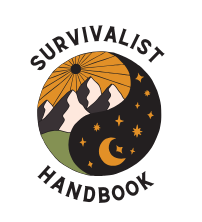Imagine embarking on an off-grid adventure with your family, living self-sufficiently and connecting with nature. From building shelters to mastering survival skills, you become empowered to handle unexpected situations. But what about altitude sickness? In this article, we will provide you with seven tips to avoid altitude sickness and ensure a seamless journey. Whether you’re planning a hiking trip or dreaming of a mountain getaway, these tips will equip you with the knowledge to adjust to high altitudes and make the most of your outdoor experience. So, let’s dive in and discover how you can stay healthy and enjoy the breathtaking beauty of high elevations without the discomfort of altitude sickness.

Understanding Altitude Sickness
What is altitude sickness?
Altitude sickness, also known as acute mountain sickness (AMS), is a condition that occurs when you travel to high altitudes too quickly and your body is unable to adjust to the decreased oxygen levels. The lack of oxygen can cause various symptoms that can range from mild to severe, including headaches, nausea, dizziness, fatigue, and shortness of breath.
Causes of altitude sickness
Altitude sickness is caused by the decrease in oxygen levels at higher altitudes. As you ascend to higher elevations, the air pressure decreases, resulting in a reduced amount of oxygen available for your body. This lack of oxygen can lead to the symptoms of altitude sickness. The rate at which altitude sickness develops varies from person to person and is not necessarily related to an individual’s level of physical fitness or health.
Symptoms of altitude sickness
The symptoms of altitude sickness can vary from person to person, but common signs include headaches, dizziness, fatigue, nausea, loss of appetite, difficulty sleeping, and shortness of breath. These symptoms may manifest within a few hours of reaching a high altitude or may take a day or two to appear. Severe cases of altitude sickness can lead to more serious conditions such as high altitude cerebral edema (HACE) or high altitude pulmonary edema (HAPE), which require immediate medical attention.
Choose the Right Destination
Research the altitude of your destination
Before embarking on your trip, it is essential to research and understand the altitude of your destination. Different altitudes can have varying effects on your body, and knowing the elevation can help you prepare for the potential risks of altitude sickness. Consider opting for destinations with lower elevations if you are concerned about experiencing symptoms.
Gradually increase your altitude
Another important aspect of choosing the right destination is to consider the route you will take to reach your final destination. Gradually increasing your altitude allows your body to adjust more effectively. If possible, plan your itinerary so that you spend a few days at intermediate altitudes before reaching higher elevations. This gradual ascent can significantly reduce the chances of experiencing altitude sickness.
Acclimatize Properly
Allow time for acclimatization
One of the key factors in preventing altitude sickness is allowing your body enough time to acclimatize. This means giving yourself a chance to adapt to the reduced oxygen levels at higher altitudes. It is recommended to spend at least 24 to 48 hours at an intermediate altitude before ascending to higher elevations. Take this time to rest and let your body adjust.
Take it easy during the first few days
Even if you are in excellent physical condition, it is crucial to take it easy during the initial days at higher altitudes. Your body needs time to adjust, and pushing yourself too hard can increase the risk of altitude sickness. Engage in light activities and avoid strenuous exercises or hikes until you feel fully acclimatized.
Avoid alcohol and caffeine
Alcohol and caffeine can have a dehydrating effect on the body, which can exacerbate the symptoms of altitude sickness. It is best to avoid or limit your intake of these substances while at higher altitudes. Instead, opt for drinking plenty of water to stay hydrated.
Stay Hydrated
Drink plenty of water
Staying hydrated is vital when dealing with altitude sickness. The dry air at higher altitudes can lead to increased water loss through respiration and sweat. Aim to drink at least three to four liters of water per day to ensure proper hydration. This will help alleviate symptoms and support your body’s adaptation to the altitude.
Avoid excessive alcohol and caffeinated beverages
Alcohol and caffeinated beverages, such as coffee and energy drinks, can contribute to dehydration. These substances can also interfere with your body’s ability to adjust to the altitude. It is best to limit or avoid their consumption while at higher elevations.

Consider Medication
Consult your doctor for altitude sickness medication
If you are planning a trip to a high-altitude destination and are concerned about altitude sickness, it is advisable to consult with your doctor. They can provide guidance on the appropriate altitude sickness medications that may be suitable for your specific circumstances. This is particularly important if you have any pre-existing medical conditions or are taking other medications.
Diamox (acetazolamide) as a prevention option
One common medication prescribed for altitude sickness is acetazolamide, commonly known as Diamox. This medication helps increase breathing rate and stimulates acclimatization processes in the body. It may be used as a preventive measure before ascending to higher altitudes. Consult with your doctor to determine if acetazolamide is suitable for you.
Take Care of Your Body
Get enough rest and sleep
Rest and sleep are crucial for your body to recover and adapt to the altitude. Aim for a consistent sleep schedule and prioritize getting enough rest. Allow yourself time to relax and recover during the day as well. Taking short breaks to rest can help alleviate symptoms and support your overall well-being at higher altitudes.
Eat a balanced diet
Maintaining a balanced diet is essential for supporting your body’s adaptation to altitude. Ensure you consume a variety of nutritious foods, including fruits, vegetables, whole grains, and lean proteins. Avoid excessive consumption of processed foods and focus on providing your body with the necessary nutrients for optimal function.
Avoid overexertion
Overexertion at high altitudes can strain your body and increase the risk of altitude sickness. Avoid pushing yourself too hard, especially during the early days of your trip. Pace yourself and listen to your body’s signals. If you start experiencing symptoms of altitude sickness, slow down and take it easy.
Watch Out for Warning Signs
Pay attention to early symptoms of altitude sickness
Being aware of the early symptoms of altitude sickness is crucial for timely intervention. Watch out for signs such as headaches, dizziness, nausea, and fatigue. If you notice any of these symptoms, it is important to take immediate action to prevent the condition from worsening.
Know when to descend
In severe cases of altitude sickness, it may be necessary to descend to lower altitudes for proper medical treatment. Pay attention to the severity and persistence of your symptoms. If they worsen despite taking preventive measures, it is crucial to prioritize your health and descend to a lower elevation where you can receive appropriate medical care.
Protect Yourself from Sun Exposure
Wear sunscreen and protective clothing
At higher altitudes, the sun’s rays can be more intense, increasing the risk of sunburn or skin damage. It is important to protect yourself by wearing sunscreen with a high SPF and reapplying it regularly. Additionally, consider wearing protective clothing, such as a hat and long-sleeved shirts, to shield your skin from direct sunlight.
Protect your eyes with sunglasses
Exposure to bright sunlight at high altitudes can also affect your eyes. Choose sunglasses that offer UV protection to shield your eyes from harmful rays. This can help prevent discomfort and potential eye problems caused by prolonged sun exposure.
Stay Warm
Dress in layers
Temperatures at higher altitudes can fluctuate significantly, especially during the evenings and nights. Dressing in layers allows you to adjust your clothing to changing temperatures. Start with a moisture-wicking base layer, add insulating layers, and top it off with a windproof and waterproof outer layer if necessary.
Use proper insulation in your accommodations
If you are staying in accommodations at high altitudes, it is important to ensure they are properly insulated to maintain a comfortable temperature. This can help prevent excessive heat loss and keep you warm during colder nights. Consider using sleeping bags or extra blankets if needed.
Physical Preparation
Stay in good physical condition before your trip
Maintaining good physical condition is beneficial, especially when preparing for a trip to high altitudes. Regular exercise, including cardiovascular activities and strength training, can improve your overall fitness level and increase your body’s ability to cope with the physical demands of altitude.
Exercise regularly
In addition to maintaining good physical condition beforehand, it is also important to continue exercising regularly during your trip. Engaging in light exercises, such as walking or stretching, can help improve blood circulation and support your body’s adaptation to the altitude. However, avoid strenuous activities that can put excessive strain on your body.
By following these tips and taking the necessary precautions, you can minimize the risk of altitude sickness and fully enjoy your high-altitude adventure. Remember to always prioritize your well-being and consult with a healthcare professional if you have any concerns or questions regarding altitude sickness and its prevention.

